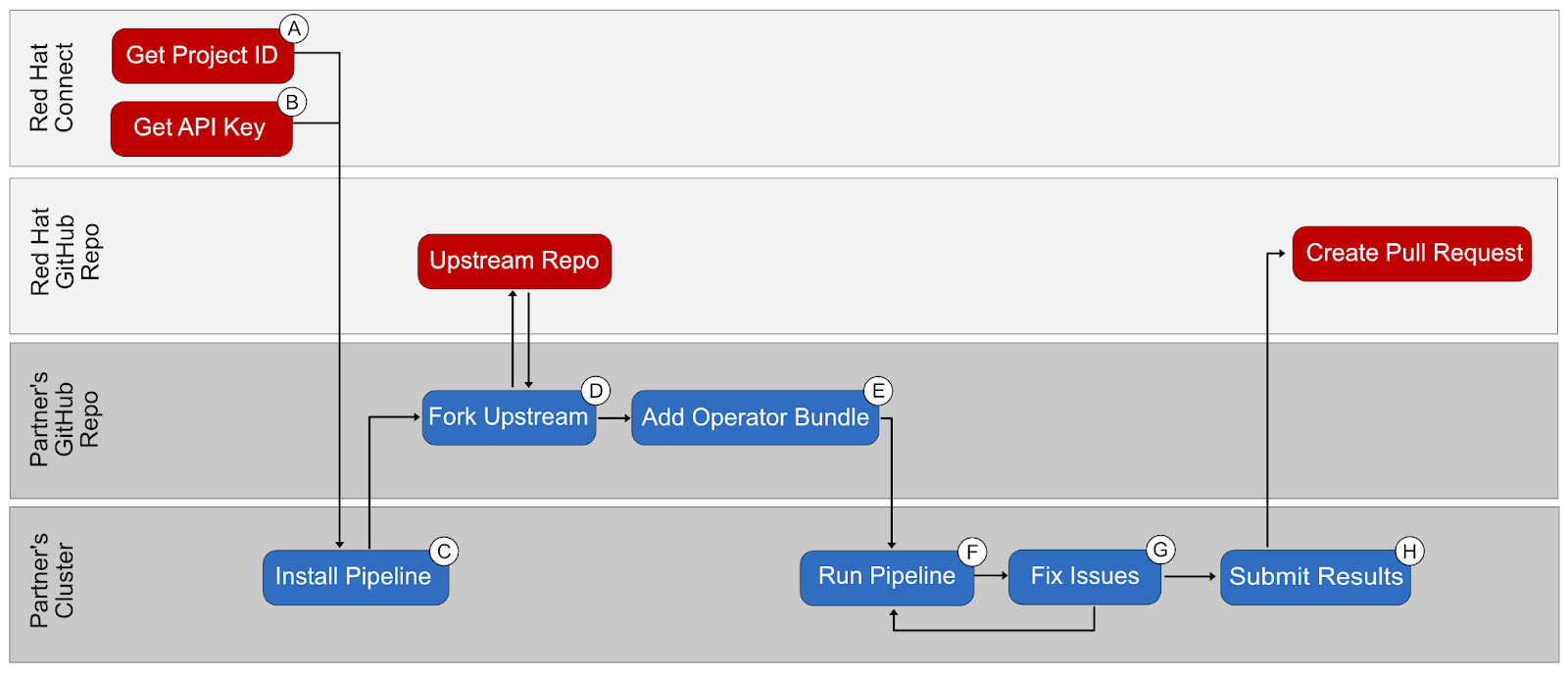Technical resources
Operator Certification Optimized for Continuous Integration
For workloads managed by Kubernetes Operators, this means offering partners an efficient way to verify interoperability of their products with OpenShift and the Operator Lifecycle Manager (OLM).
What are we announcing?
New testing and certification tools are now available for Operators on Red Hat OpenShift to address this need, along with changes to the process to submit results to Red Hat for publication in the OpenShift OperatorHub and Red Hat Ecosystem Catalog. These changes offer better integration with developer workflows, more control over the test environment, and faster turnaround time.
What's new?
The changes are specific to the certification of Operator bundles, where we are now offering two options to conduct the certification:
- New: Run the tests on your own OpenShift cluster. Use OpenShift Pipelines (based on Tekton) to run the certification tests, so you can evaluate locally whether your bundle meets the criteria. Once you are ready to certify and publish your Operator bundle, use the pipeline to submit the pull request (PR) to GitHub on your behalf.

- Run the tests on a Red Hat-hosted service. Submit your Operator bundle via a GitHub PR, and Red Hat will run the certification tests using a default installation of OpenShift. This option is similar to the previous certification workflow, but the bundle is now submitted via GitHub.
Behind both of these options is a new tool (a preflight check) that runs the Operator tests, whether they are executed locally or in a cluster managed by Red Hat.
Along with this new process, we have published an OpenShift Certification Policy Guide that covers the Operator certification requirements in detail. While the requirements have not changed with this new certification workflow, this document sets clear expectations on the conditions that must be met.
Why these changes?
By using GitHub to submit bundles, we’re aligning with tooling that is popular with developers and suitable for integration with a variety of environments. We are also conducting the upstream development of certification tools through open source projects to give you greater visibility into the process and the specific tests used to validate Operators.
The option to use your own OpenShift cluster allows you to combine your functional tests with the certification tests using the same environment; this can be particularly useful when your product has some unique dependencies, such as specialized hardware. OpenShift Pipelines provides automation that is integrated with the OpenShift UI, so certification can be set up as a repeatable process within your Operator development and release cycle.
Finally, this transition also allows updates to our backend processes, to improve reliability and scalability of the certification and publication services, and provide a better visualization of test logs.
What stays the same?
The Red Hat Partner Connect portal will continue to be used to set up your Operator bundle and Container projects, to provide information for your product listing in the catalog, and to obtain an API key. It can also be used to track project status.
If you already have a certified Operator, you can continue to use your existing project while following the new workflow. Note that the certification process for the application containers—the operands—remains the same.
Next steps
Familiarize yourself with the new process by viewing the documentation. Pay special attention to the format needed to submit your Operator bundle.
In preparation for this new approach make sure your organization has an account on GitHub that can be used for certification purposes. If you are using the on-premise option, ensure you have an API key as the tool requires it to authenticate with the certification service.
If you have any comments or questions, please contact our Success Desk and let us know how we can assist.

